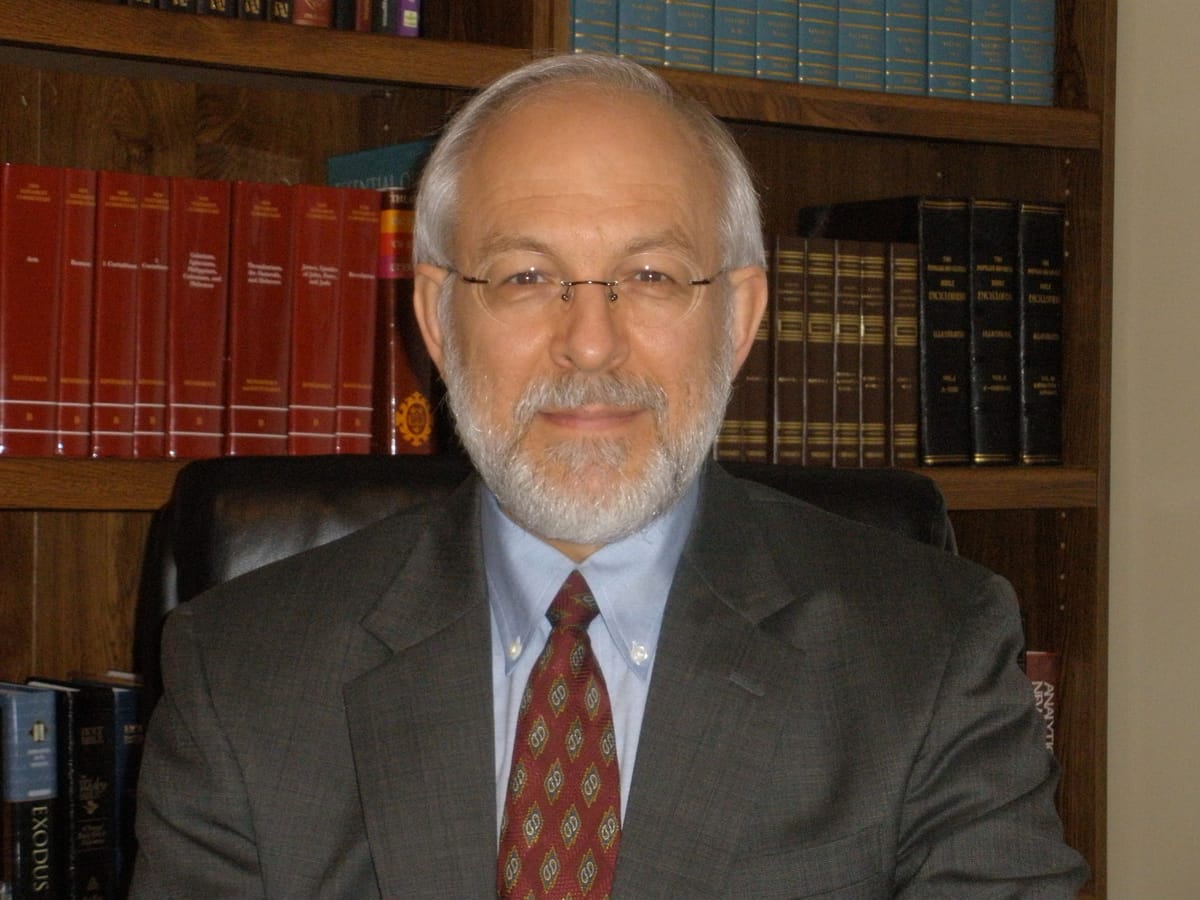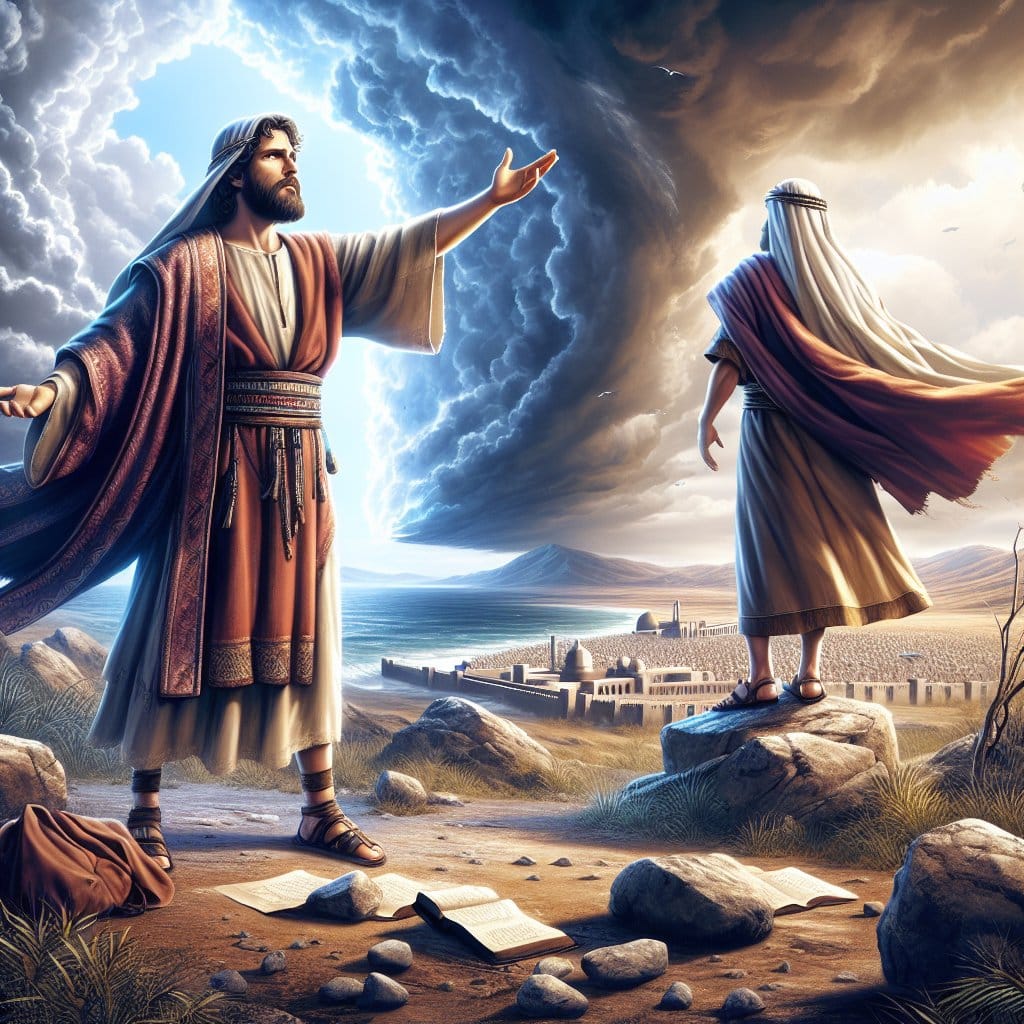From where we left off in part 10…
Numbers 35:31 Moreover ye shall take no satisfaction [ransom] for the life of a murderer, which is guilty of death: but he shall be surely put to death.
This does not merely mean there shall be no bribes to the judge. “Ye shall take no ransom” would also include allowing a murderer to simply pay a fine (ransom) for murder. Another thing that has become common in our judicial system in the last many decades is plea bargaining.
As far as I can ascertain, there is no provision for plea bargaining in God’s law. The only plea bargain we can do is to plead the blood of Jesus. That would get a criminal saved, but he still must pay the penalty prescribed by God’s law.
Take first degree murder, for example. Our example was recent history when I first gave this lecture, so here is a bit of background on the murderer:
Ted Bundy (born November 24, 1946, Burlington, Vermont, U.S.—died January 24, 1989, Starke, Florida) was an American serial killer and rapist, one of the most notorious criminals of the late 20th century. Bundy confessed to 28 murders, but some believe he actually killed hundreds. Source.
Bundy was convicted of three murders and was executed in the prison at Starke, Florida, in 1989. Dr. James Dobson (of Focus on the Family radio fame, who just passed away yesterday, August 21, 2025, at the age of 89) had been permitted to visit him shortly before Bundy was put to death.
Later, Dr. Dobson stated that there is a possibility that Bundy may have truly repented and become a Christian in his last few weeks or months.

I am not judging either way, he might have. He might have eternal salvation. The point is, he still had to pay with his life for (some of) the murders that he had committed.
Numbers 35:32 And ye shall take no satisfaction [ransom] for him that is fled to the city of his refuge, that he should come again to dwell in the land, until the death of the priest.
In ancient Israel they had cities set up that were called cities of refuge. The medieval practice of fleeing into the sanctuary of a church for safety derived from the idea of the biblical city of refuge. By the way, Gibeon was one of the cities of refuge.
However, these cities of refuge were not to be a place of safety for someone who might have committed a murder. They were to be a place of safety for somebody who committed manslaughter.
In the days of ancient Israel, the manslayer was allowed to go to the city of refuge and the family of the victim was not allowed to seek vengeance on him there since the guy did not do it intentionally.
Numbers 35:33 So ye shall not pollute the land wherein ye are: for blood it defileth the land: and the land cannot be cleansed of the blood that is shed therein, but by the blood of him that shed it.
Talk about the shedding of blood defiling the land, what about 20-25 million or so murders called “abortion” that have been going on in this country since 1973 due to the Roe vs. Wade decision?
Finally, the Supreme Court reversed the Roe abomination decision in June 2022. But the number of aborted/murdered babies was then estimated to have been somewhere near 60 million! Do you think our land is defiled because of that innocent blood that has been shed?
Unquestionably! Do not pollute the land! The blood defiles the land! The land cannot be cleansed except by the blood of him that shed it! This idea of blood defiling the land brings us back now to what King Saul had done, and the aftermath of his action in the time of King David.
2 Samuel 21:2 And the king [David] called the Gibeonites, and said unto them; (now the Gibeonites were not of the children of Israel, but of the remnant of the Amorites; and the children of Israel had sworn unto them: and Saul sought to slay them in his zeal to the children of Israel and Judah.)
3 Wherefore David said unto the Gibeonites, What shall I do for you? and wherewith shall I make the atonement, that ye may bless the inheritance of Yahweh?
Notice the word atonement. David is saying, how can we make it up to you? David knew the law, that blood from a murder defiles the land and the land can only be cleansed by the blood of him who shed it. David knew that the famine upon Israel was because of Israel’s guilt as a nation, because their former leader, King Saul, had shed blood unjustly and the whole nation was now suffering because of it.
Therefore David said to the Gibeonites: What can I do for you to make atonement, so that you are going to bless us, the inheritance of the Lord, instead of bringing this curse, this three-year famine upon us? ‘‘The inheritance of the Lord” is explained in…
Deuteronomy 32:7 Remember the days of old, consider the years of many generations: ask thy father, and he will shew thee; thy elders, and they will tell thee.
8 When the Most High divided to the nations their inheritance, when he separated the sons of Adam, he set the bounds of the people according to the number of the children of Israel.
9 For Yahweh’s portion is his people; Jacob is the lot of his inheritance.
We see that Yahweh has an inheritance. And what is that inheritance? It is His people Israel. Because of that and God’s covenant with Israel, Israel cannot violate Yahweh’s laws with impunity. You cannot do it and get away with it. This is why the curse of the famine was upon that land.
2 Samuel 21:4 And the Gibeonites said unto him, We will have no silver nor gold of Saul, nor of his house; neither for us shalt thou kill any man in Israel. And he said, What ye shall say, that will I do for you.
So here we see that the Gibeonites were aware of Israel’s law, specifically the statute which states that you cannot give a ransom for the blood guilt. We just read it in Numbers 35.
So they said to David: “We don’t want any gold! We don’t want any silver from Saul! You are not going to buy your way out of this one and we don’t want you to just take one man and put him to death.”
And he (David) answered: “What ye shall say, that will I do for you.” Paraphrasing that: “Well, what is it you want? What do you want? Just tell me and I will do it.”
2 Samuel 21:5 And they answered the king, The man that consumed us, and that devised against us that we should be destroyed from remaining in any of the coasts of Israel,
6 Let seven men of his sons be delivered unto us, and we will hang them up unto Yahweh in Gibeah of Saul, whom Yahweh did choose. And the king said, I will give them.
The Gibeonites asked for seven sons of Saul. Why seven? Numbers are important in the Scriptures. A man by the name of Dr. E. W. Bullinger, about a century ago, wrote a book called Numbers in Scripture. Seven is the divine number. It stands for spiritual perfection. But there is more to it than that. Quoting from Bullinger:
QUOTE: But now turning to the number seven, we must first consider the meaning of the word. In the Hebrew, seven is sheva. It is from the root savah, which means “to be full, or satisfied, or to have enough of.” END QUOTE
I have no doubt that there were seven literal sons (which could include grandsons) of Saul that were hanged. But often times the metaphorical or figurative meaning could also be true. Here for instance, it could simply mean “to be full” or “to be satisfied, to have enough of.” In other words, hanging the seven sons would bring about complete satisfaction, or atonement, for that sin that Saul and his sons had committed. Continuing to quote Bullinger:
QUOTE: Hence the meaning of the word seven is dominated by this root, for on the seventh day, God rested from the work of creation. It was full and complete, and good and perfect. Nothing could be added to it or taken from it without marring it. Hence, the word shavath, to cease, desist, rest, and shabbath, sabbath or day of rest. It is seven that stamps with perfection and completeness that in connection with which it is used ... END QUOTE
There, you see perfection or completeness: seven was the number of Saul’s sons that would perfectly or completely satisfy the blood guilt that would cleanse the land, that would lift the curse of the famine. As we continue with the story, the Gibeonites have demanded that seven of Saul’s sons be delivered over to them, and they are going to execute them.
2 Samuel 21:7 But the king spared Mephibosheth, the son of Jonathan the son of Saul, because of Yahweh’s oath that was between them, between David and Jonathan the son of Saul.
David and Jonathan were very close; they were closer than physical brothers; they were brothers of the spirit. The Scripture relates how Jonathan died in battle, I believe at the same time his father Saul was killed there on Mount Gilboa.
But David and Jonathan had a covenant, sworn under the word of Yahweh, and this evidently had to do with the offspring of Jonathan, for David spared Mephibosheth, one of the sons of Jonathan.
2 Samuel 21:8 But the king took the two sons of Rizpah the daughter of Aiah, whom she bare unto Saul, Armoni and Mephibosheth [obviously, this is another Mephibosheth, not the son of Jonathan]; and the five sons of Michal the daughter of Saul, whom she brought up for Adriel the son of Barzillai the Meholathite:
There are the seven men. They only give the names of two of them. Mephibosheth means “that destroys the shame” and Armoni means “of the palace”. Putting it together, we have “that destroys the shame of the palace.” The names are prophetic. The execution of the seven, including Mephibosheth and Armoni, destroys the shame of the palace. It cleanses the blood guilt.
9 And he delivered them into the hands of the Gibeonites, and they hanged them in the hill before Yahweh and they fell all seven together, and were put to death in the days of harvest, in the first days, in the beginning of barley harvest.
Is the inspired Word being repetitious here in the emphasized portion? Why does it say “in the days of harvest” and then it specifies “in the first days” and then it repeats “in the beginning of” and in the beginning of not just any old harvest, but of “the barley harvest”?
We are all familiar with the harvest from the parables in the book of Matthew. In the parable of the wheat and the tares, Jesus himself identifies the harvest as symbolizing the end of the age. I believe that each harvest at the end of an age represents a resurrection of certain groups of people.
There are therefore at least three resurrections: the spring harvest, the late spring or early summer harvest, and the fall harvests. As stated earlier in these studies, these correlate to the three major feast times of Israel: Passover and Unleavened Bread, Pentecost, and Ingathering (Trumpets, Day of Atonement/Jubilee, and Tabernacles).
Back in 1991, when I first prepared these messages, I was puzzled as to what the seven sons of Saul could represent. Dr. Stephen Jones and I had first met in 1978, but then did not see each other until Steve visited at our house in late 1991 or early 1992.
He shared with Roxanne and me, explaining his huge chart (about nine feet long by three feet wide rolled out on our living room floor) which later became the basis for his book—and doctoral thesis—Secrets of Time.
When he asked what I had been doing, among other things, I mentioned my barley series. He was very interested and took a set of the cassette tapes along with him. Later, the heavenly Father revealed to Steve the answer to my question on the symbolism of the seven sons of Saul. He expounded concerning it in his book called The Seven Churches. Let me now quote from his book. Boldface emphasis is mine.
QUOTE: Saul was crowned king on the day of Pentecost (1 Samuel 12:17), and he reigned over Israel for 40 years (Acts 13:21). During that time, he persecuted David, the type of the overcomer, because his own heart was not right with God, but he blamed David for all his troubles.
He felt that David was trying to usurp the legitimate authority that God had given Saul. He felt that David was causing a rebellion, a schism in the land, and turning people away from the established monarchy.
While his arguments must have seemed right to many of the people at the time, the Bible reveals that his true motives were rebellion against God (1 Samuel 15:23), guilt in knowing that he had been disqualified in the sight of God from having an enduring dynasty (1 Samuel 15:26-28), and fear of the one God would raise up to replace him ....
But many wonder why God did not simply remove him immediately and make David king. First of all, David was only eight years old at the time. Of course, God could have seen to it that David were older, but instead, God thought it good to use Saul’s rebellion to train David and teach him obedience by the things which he would suffer. God knows how to work all things out for our good, and this is a prime example.
King Saul had seven sons, who represent the Seven Churches in the book of Revelation. They unlawfully persecute the Gibeonites, with whom Joshua had made a covenant. As a result, the seven sons of Saul paid the price for their father’s [and their own- JWB] sins.
They were hanged on the first day of barley harvest, the day of the wave-sheaf offering shortly after Passover .... The fact that the seven sons of Saul were hanged on the day of the barley harvest shows the Seven Churches will not receive the inheritance reserved for the overcomers, when they [the overcomers] come into their inheritance.
The wave-sheaf offering was the day Jesus was raised from the dead, coming into His inheritance. The overcomers identify with Him as His body; but the Seven Churches are disinherited at the same time. END QUOTE.
“[D]isinherited” but not lost! The church consists of overcomers and non-overcomers. The overcomers will be resurrected (or translated, if still alive) at the first resurrection, which the church generally and mistakenly calls the rapture (of all believers). Not so. Only the overcomers are raised in the first resurrection.
The rest of the believers are raised at the second resurrection along with the “unsaved.” Notice the words of Jesus Himself:
John 5:28 Marvel not at this: for the hour is coming, in the which all that are in the graves shall hear his voice,
29 And shall come forth; they that have done good [the non-overcomer believers], unto the resurrection of life; and they that have done evil [the unsaved], unto the resurrection of damnation [judgment].
This concludes our discussion of the seven sons of Saul who were hung at barley harvest. It is thrilling to see how every single word in the Scriptures is vitally important. There is still more to come in our study of barley in the Bible.
(To be continued.)
~END~




